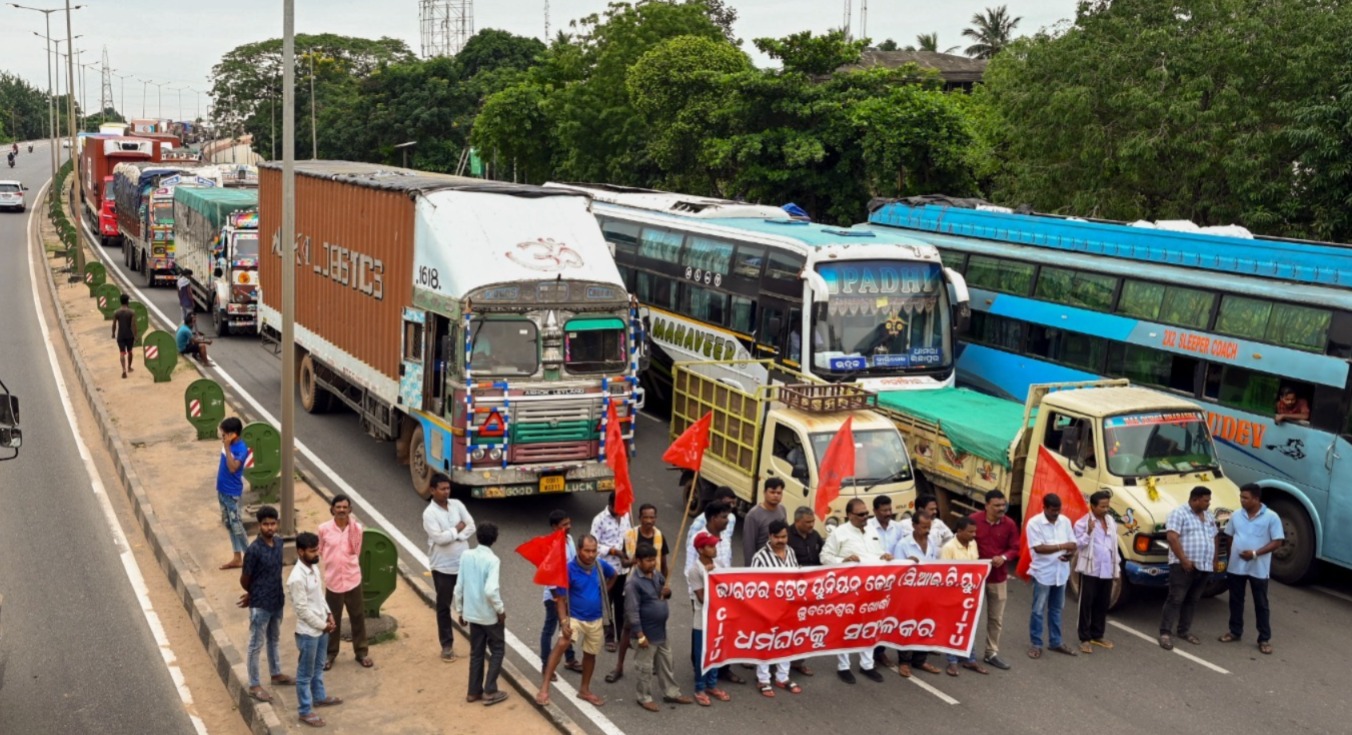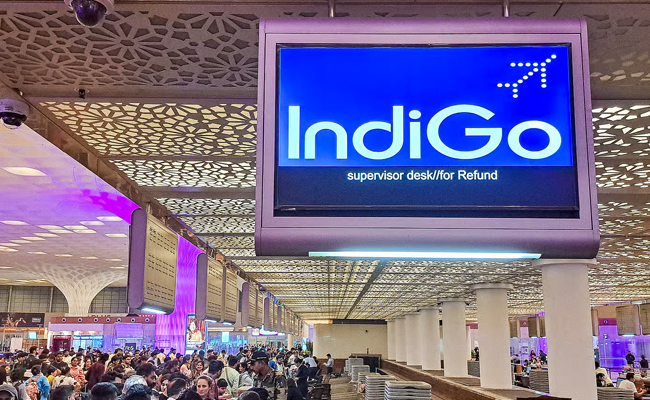New Delhi: A nationwide strike or Bharat Bandh called by ten central trade unions is underway today, with over 25 crore workers from both organised and unorganised sectors participating. The strike, which is also supported by several rural and agricultural labour organisations, is a protest against the central government’s economic and labour policies, which unions claim favour corporates at the cost of workers, farmers, and the poor.
Key demands of protesters:
► Withdrawal of the new labour codes,
► Increase in minimum wages,
► Creation of more government jobs,
► Hike in MGNREGA wages and workdays,
► A similar urban employment guarantee scheme,
► End to hiring retired officials over younger professionals in government departments.
A 17-point charter of demands has been submitted to the Union Labour Ministry, but union leaders allege no meaningful engagement has been initiated by the government so far.
Disruptions reported:
While banks, stock markets, and government offices are functioning as usual, disruptions are being reported in public transport across several states:
West Bengal: Protesters blocked railway tracks at Jadavpur railway station despite police deployment. Bus services continued amid high security, with some drivers seen wearing helmets as a safety measure.
Karnataka, Tamil Nadu, Bihar and parts of Delhi and Maharashtra reported sporadic disruptions in bus and train services.
Schools and colleges remain open in most places, though some institutions announced last-minute closures depending on local conditions.
Unions leading the strike:
The strike is being spearheaded by major trade unions including: INTUC, AITUC, CITU, HMS, SEWA, AIUTUC, AICCTU, LPF, UTUC, and TUCC.
The new labour laws, a major flashpoint, have drawn flak for allegedly weakening worker protections. Union leaders say the changes:
► Extend working hours,
► Restrict the right to strike,
► Undermine collective bargaining.
The unions have also criticised the trend of hiring retired officials instead of young jobseekers. With 65% of India's population under the age of 35, they argue that ignoring youth employment in sectors like Railways, steel, and education is both unjust and economically damaging.
This is not the first large-scale strike organised by the trade unions. Similar nationwide protests were held on:
November 26, 2020,
March 28–29, 2022,
February 16, 2024.
All of them focused on issues like the privatisation of PSUs, job insecurity, and the casualisation of the workforce.
Let the Truth be known. If you read VB and like VB, please be a VB Supporter and Help us deliver the Truth to one and all.
Bengaluru (PTI): The Karnataka government has issued directions to municipal corporations across the state to regulate and prohibit feeding pigeons in public places, citing serious public health concerns.
Deputy Secretary to Government V Lakshmikanth has written to the Urban Development Department requesting it to issue directions to the Greater Bengaluru Authority (GBA) and all municipal corporations to take immediate steps to implement the measures.
In an official note dated December 16 issued by the Health and Family Welfare Department and released to the media on Wednesday, the department said uncontrolled feeding of pigeons in public places has resulted in large congregations of birds, excessive droppings and serious health concerns, particularly respiratory illnesses linked to prolonged exposure to pigeon droppings and feathers such as hypersensitivity pneumonitis and other lung diseases.
ALSO READ: Chinese GPS tracker found on seagull near Karwar Coast
"The commissioner, the Greater Bengaluru Authority and the Commissioners and chief officers of other municipal corporations shall take necessary action to mitigate the causes of dangerous disease spread by pigeon and enforce specified guidelines in their respective jurisdiction," the note said.
According to the department, these include a prohibition on feeding pigeons or causing pigeons to be fed in areas where it may cause nuisance or pose a health hazard to the public. Pigeon feeding shall be permitted only in designated areas in a controlled manner, subject to certain conditions.
"The designated areas may be selected in consultation with stakeholders. The responsibility for upkeep of the designated areas and compliance to the directions shall be taken up by some charitable organisation or an NGO. The feeding in designated areas shall be permitted only for some limited hours in the day," it said.
The note further stated that authorised officers of local authorities shall issue on-the-spot warnings and may impose fines for violation of the order, or lodge complaints to prosecute offenders under Sections 271 (Negligent act likely to spread infection of disease dangerous to life) and 272 (Malignant act likely to spread infection of disease dangerous to life) of the Bharatiya Nyaya Sanhita.
It also directed local authorities to conduct public awareness campaigns, including the display of signboards, banners and digital messages, explaining the health hazards associated with pigeon droppings and feathers, the content of the regulatory directions and penalties for violations, and alternative humane methods of bird conservation that do not endanger public health.





